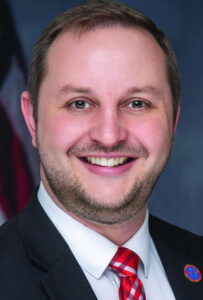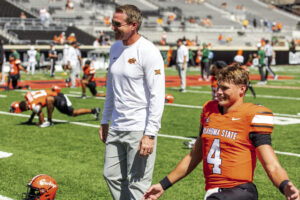Protecting free speech in churches
By Staff
August 5, 2001
In 1954, a law was enacted that has had a chilling affect on free speech in churches all across America.
The law gave the Internal Revenue Service the power to punish churches if they were viewed as "participating in or intervening in" political issues or activity.
While many good and reasonable people may disagree about the role of religion in politics, I think we can all agree that limiting the right to free speech within a church is a bad law and it is time to give churches back their absolute right to free speech.
If the IRS decides a church has violated the 1954 law's ban on political speech, they can and have penalized churches by revoking the tax exempt status for houses of worship or imposing fines on them. Here's an example of what the IRS considers to be a forbidden, political activity by a church:
Political activities
If a preacher makes a statement about a social and moral issue it can be viewed as political activity. Because it is difficult to discuss important social issues that are inherently political, without seeming to side with one candidate or party, clergy cannot so much as speak out on vital moral issues of the day without fear of IRS punishment.
Ultimately, the IRS' standards of enforcement are entirely arbitrary. If a minister says that he believes people should support prayer in schools, he can be seen as endorsing a candidate who shares that position.
The line between speaking out on issues and endorsing or opposing a candidate is unclear and left up to the IRS's to decide. Many religious leaders have shied away from speaking out on social issues at all due to their political nature.
I am co-sponsoring legislation in Congress titled the Houses of Worship Political Speech Protection Act sponsored by U.S. Rep. Walter B. Jones of North Carolina.
The bill will restore the Constitutional right of houses of worship to participate in political debate and determine for themselves what they can and cannot say in church. The legislation is gaining momentum in Congress because churches all across America wish to participate in their civic responsibility of being informed citizens who participate in the political process.
Lift the ban
By lifting the IRS' absolute ban on political speech, the legislation will allow houses of worship to participate in our democracy without fear that the government will penalize them for doing so. After all, if the right to free speech of the religious can be restricted, who will be limited next?
Some may ask if this legislation will "politicize" religion. It will not. The government's role is not to define what religion is and how it applies to people's lives. Wherever injustice occurs, religion may motivate people to enter the political realm and the government may not then decide that religion is overstepping its bounds.
If religious people are prohibited from speaking out on political issues if they so choose, the result is the government's interference with religion which the Constitution does not allow.
Throughout all of America's history, houses of worship have been tax-exempt. The Houses of Worship Political Speech Protection Act will restore the rights of religious people not give them special privileges. Free speech should mean free speech, whether it is done in the home, the workplace, or the church.
U.S. Rep. Chip Pickering represents Mississippi's Third Congressional District. Write him at 427 Cannon Building,
Washington, D.C. 20515, or call (202) 225-5031.








